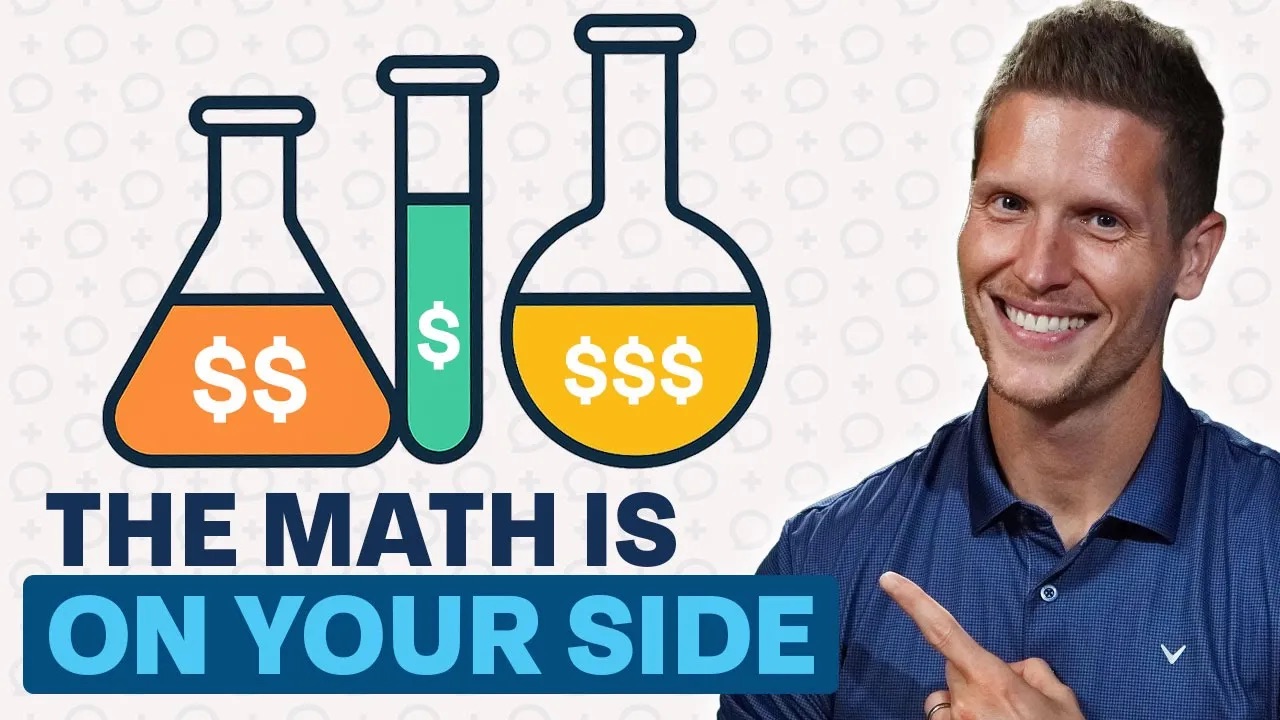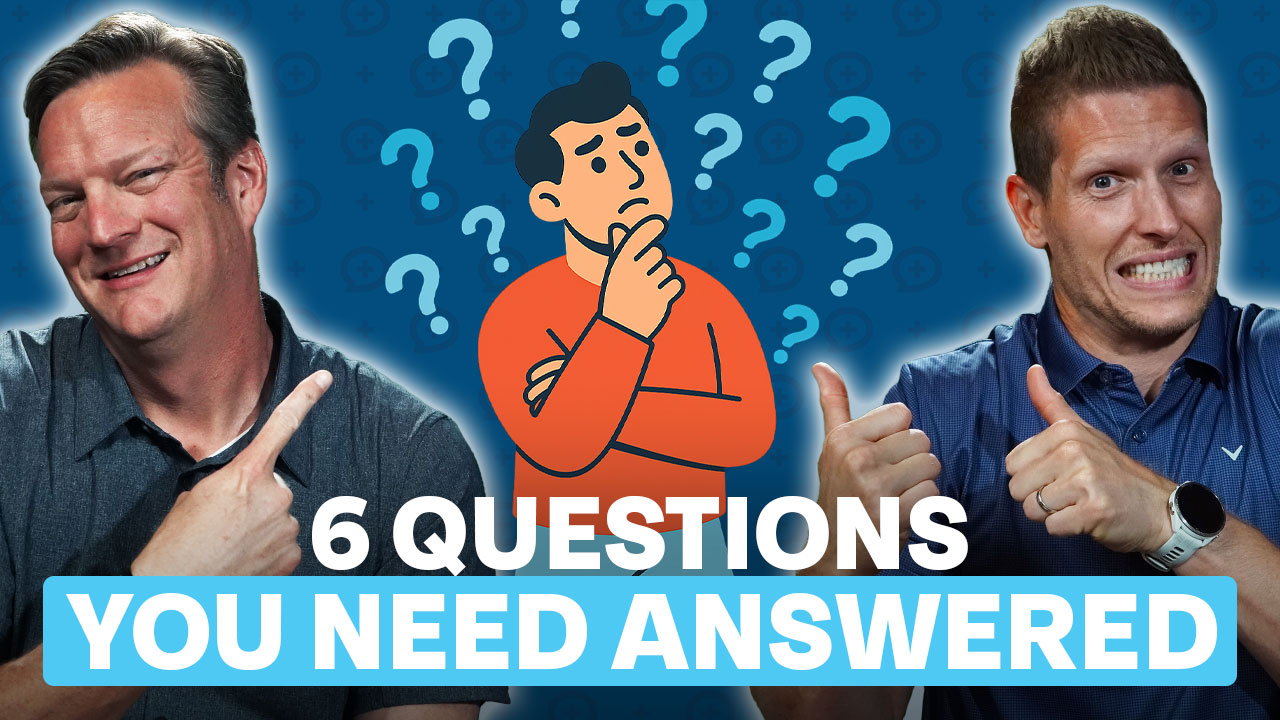Yeah, we're gonna kick it off with a question from Luke. He says, "I'm 29 and on Step 7 of the
Financial Order of Operations. Congratulations, right? Yeah, shout out to Luke! Do the rules about saving cash change once you hit the 25% savings rate that we talk about? I've been investing the extra amounts, but I'm wondering if I should have extra cash on hand in case the 'tide goes out.' So, how should you think about this? So, he's asking the Powder Money question, Brian."
"Okay, I'm doing what I'm supposed to be doing. I follow the
Financial Order of Operations. If you've never heard of that, go to
moneyguy.com. Resource whatever you want, it's up there. We have a free deliverable. Oh yeah, we have a free deliverable you can go check out, the nine tried and true steps. And he said, 'Hey, I'm on Step Seven, I'm in the hyper-accumulation phase. Since I'm doing that, should I start to become a little more opportunistic? Should I think about building up more cash than what I had in Step Four emergency reserves and start thinking about future opportunities?'"
"Brian, I'd be curious to know when your financial journey, as you've worked through the
Financial Order of Operations, and as different opportunities have presented themselves, how have you navigated the whole Powder Money decision?"
"Well, Luke, you're asking a great question, and it's almost like this was designed for these things to roll right into each other. Because remember, just for those who are not as familiar with the
Financial Order of Operations, Step Seven is that strategy once you reach 25% savings and investing automatically. Into, you know, for the future hyper-accumulations, where you really pay attention to the three-bucket strategy."
When we talk about the three-bucket strategy, we're talking about your after-tax money, your traditional tax-deferred money, and of course, your tax-free Roth money, which is all powerful. And Luke is probably looking at this going, 'Man, okay, I'm doing the 25%, but now where do I get into the big decisions? Not only do I keep more cash so I have more Powder Money for the future, but is this when I fund the kids' college? Is this when I buy the nicer car and expand the lifestyle? All those things bleed right into Step Eight of the financial order of operations really well because that's exactly what you've already done, the foundation. So now you're playing out, 'Is this after-tax? Is this tax-deferred?' which is Step Seven, but now you're kind of graduating into Step Eight, saying, 'What's the next dollar need to go to?'
"I will tell you, in my own journey, I have found, and this is something you can learn from watching people like Warren Buffett and others, is I do want you to build the foundation first, and that's what steps one through seven will get you. But step eight gives you the freedom now to say, 'Hey, how do I become my own little mini Warren Buffett?' When everybody else is struggling to pay the basics because they have zero cash, we know the typical American, close to 60%, can't come up with a thousand bucks. You know what that creates? That creates opportunities for those who are more disciplined, who do have cash in the bank. Because we all treat cash like it is the easiest and most basic thing, that we take it for granted until all of a sudden we're hurting. And it's just like oxygen, where we go underwater and we go, 'oh my gosh, that thing I take for granted and I breathe in every day like oxygen. All of a sudden, I need it, and it's priceless and it's worth anything and everything." That's exactly what happens with cash, and that's why Warren Buffett, every time we have a financial crisis, everybody always goes and says, "Hey, to the point that this weekend, I don't know if it's true because I've been too busy coming back from vacation, catching up and everything, but there are rumors that all these private jets are flying into Omaha. And as soon as they start seeing like 30 planes flying into Omaha, they have to assume, well, you know what? The government and all these bankers must be going to see the Oracle of Omaha to figure out how we're going to get all the banks into better places." That's one heck of a place to be because we know Warren Buffett and Berkshire Hathaway made billions after the Great Recession. When everybody else was struggling to have money, they had resources and were able to capitalize off of that.
Now look, I'm not saying sit around with a bunch of cash to the point that it's unhealthy for you, but I think there is nothing wrong when you get into those more mature stages. You do have a decision when you're in Step Eight and then leading into Step Nine that maybe you pre-pay some additional debt. Like, you look at your mortgage, you look at other things and say, 'Should I pay down more debt?' Or should I, like we've, I bought real estate? I mean, when Bo and I came through the pandemic, everybody was thinking, 'We'll go work from home forever.' And maybe for some people, they are. But I also knew that this was going to create a contrarian opportunity. That a lot of people who are going to be scared about owning commercial real estate would probably be looking for the exits. As well, the government was very scared about this, so they created a lot of opportunities to reduce the friction by opening up the small business 504 loans and so forth. It was the perfect opportunity. If you were sitting on extra cash, you could go utilize this, especially if you're a small business owner and you actually need to pay rent to put your business somewhere. Owning the building that you have your business in is a great wealth builder in the long term after you've made it through the first seven steps, just like what Luke is talking about.
So, I like cash, but I don't think it has to be something. Just don't do this in Step Four. Don't do this in Step Five. Make sure it's after you've built that foundation of saving and investing 25%. Set it for the people automatically so that your actual wealth building doesn't stop just because of your reacting to the market.














